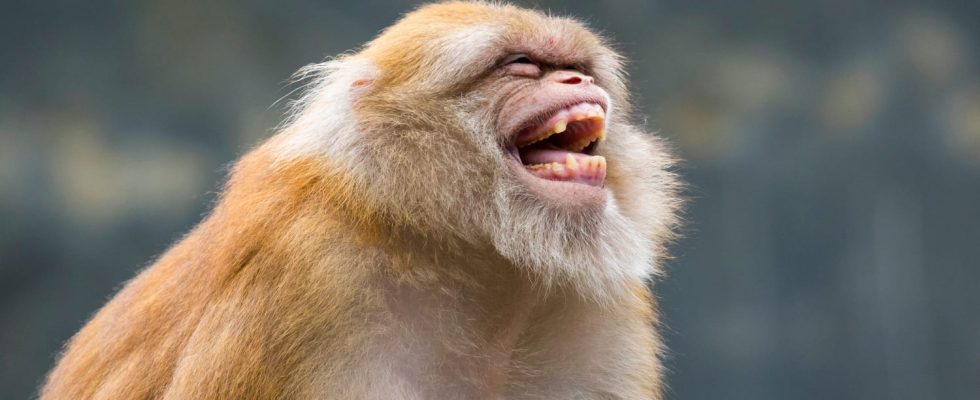New academic research on monkeys proves their capacity for humor. This provides keys to understanding the origin of human laughter.
Human beings have many things in common with the ape, from which they descend. It’s not just physical. Monkeys, in fact, also have behaviors that are similar to ours. One of their human-like abilities would be humor. In a new study published in the journal Proceedings of the Royal Society B, biologists and primatologists from the University of California at Los Angeles, the Max Planck Institute of Animal Behavior, Indiana University and the University of California at San Diego have revealed that chimpanzees but also gorillas or ourangutans had their own sense of humor.
They analyzed no less than 75 hours of video of great apes, focusing in particular on one young primate per species. They discovered that the form of humor favored by monkeys is teasing. In the study, the example of a fun game between monkeys is exposed: a young primate offers an object to another before withdrawing it at the last second. He repeats the gesture until his interlocutor reacts. The teasing was also shared: experts noticed that the reaction to this joke was rarely aggressive. The return of the animal targeted by the prank is rather to tease the other in turn by chasing it or tickling it. Some young monkeys also like to tease older ones by jumping on them when they are sleeping, for example.
These behaviors appear similar to those of humans. A young child will sometimes engage in the same teasing game, hoping to see his interlocutor react. This can appear from a very young age, even before language. Researchers have also identified three types of teasing that a child knows how to demonstrate at one year old and this is very similar to that of the monkey: “The offering and withdrawal of objects, provocative disobedience (attempting to perform an action prohibited or refusing to behave expectedly) and disrupting the activity of others (blocking someone’s path or stealing an object they want to use).”
According to the study, no differences having been observed between species of monkeys, the “cognitive conditions for joking” would have evolved in an ancestor common to them and to humans, several million years ago. The lead author, Isabelle Laumer, however, did not wish to speculate on the usefulness of teasing in monkeys. For children, she believes it helps them “test social boundaries” and strengthen their relationship with the person targeted by the joke.
